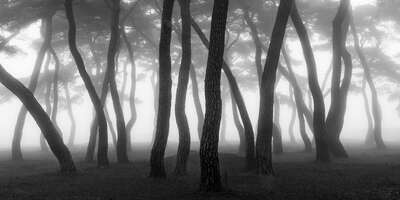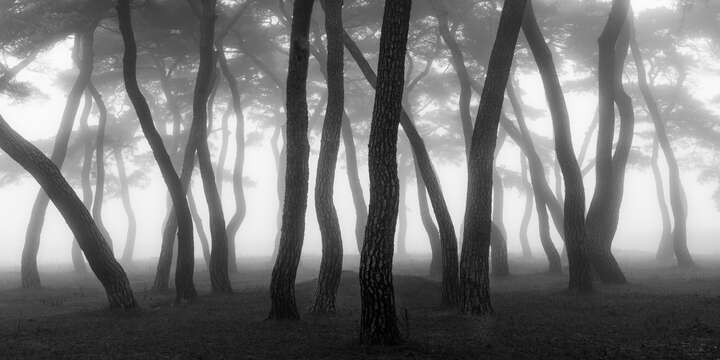Introduction
In his large-format artworks, Nathaniel Merz captures the immense power of Korean forests, pointing out the symbolic significance of the pine tree. The evergreen is ever-present in Korean culture and deeply traditional. Pine branches are used to ward off impurity and protect newborns. On holidays, traditional dishes are prepared with pine bark.
The meditative photographs put us right in the thick of the forest, where we can hear the breeze, smell the damp grass, and let our minds wander into the realm of the carefree that only exists in open nature. With the bending trunks and strong backlighting that comes through between them, a mysterious calm is created. The tree silhouettes make the pieces seem almost drawn or painted.
Nathaniel Merz draws inspiration from the aesthetic of famous South Korean photographer Bae Bien-u, who has been photographing the pine forests of southeast Korea for decades and is a professor of photography at the Seoul Institute of the Arts. Bae’s works almost look like black and white graphite drawings, and Merz expands on this atmosphere with monochromatic hues. He takes a very sensitive and respectful approach to the symbolic pines. The proud trees look like drawings, nature’s masterful calligraphy. Photography itself becomes a means of capturing the phenomenon of timelessness.
Bio
Nathaniel Merz was born in Seattle, Washington in 1987 and now lives in South Korea. He is the recipient of a NANPA (North American Nature Photography Association) scholarship and has won multiple awards for his photographs including a 2017 Epson International Pano Award. His work has been shown in South Korean galleries and popular publications including Seoul Selection and Practical Photography.







